The Importance of Play
Play is important work for your child’s development. It provides an opportunity for you and your little one to bond, while also stimulating the brain and forming connections between nerve cells. Play is amazing work!
Find a group and register your child
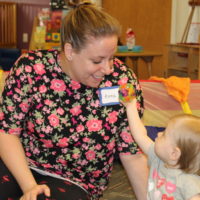
Play is important work for your child’s development. It provides an opportunity for you and your little one to bond, while also stimulating the brain and forming connections between nerve cells. Play is amazing work!
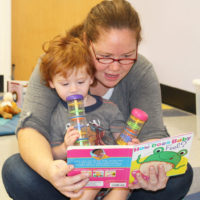
Research shows that reading to young children has many benefits. Not only are you building an early foundation for literacy and language, but the quality time spent together reading enhances attachment and strengthens the relationship between the reader and the baby. Parenting educators talk a lot of about early literacy during our classes, but that does not mean we expect babies to read!

You have likely heard how important naps are in the first few years of life – this much needed downtime is essential for brain development and emotional regulation. However, successful naps are not always easy. Age, temperament, and opportunity are just a few things that can impact the quality and quantity of naps; and what naps look like for one child will most likely be different than another.
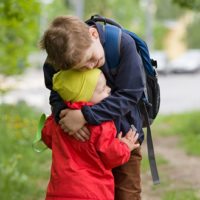
Because the concept of “sorry” is not something children can hold in their hands and touch, it is very difficult for them to understand. Children first have to understand empathy in order to be able to genuinely apologize.
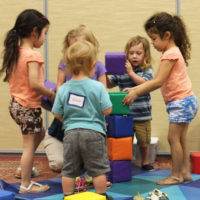
Sharing is a very difficult concept for children to learn! Generosity and empathy- the foundation for sharing – are qualities that emerge over time; and considering all the physical, emotional, social, and cognitive development that takes place in the early years, children do not have the ability to fully understand the idea of sharing until about 4 or 5 years of age.
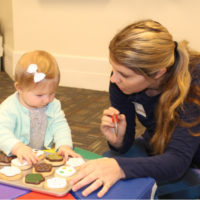
Our language is a complex system of sounds, rhythms, pitches, and syllables. In an effort to engage babies in learning and understanding language, parents and caregivers often create their own way of communicating that we know as “baby talk” or “motherese.” Babies seem to prefer listening to this “sing song” speech; but parents may wonder if baby talk helpful in teaching children language.

The excitement of the holidays can pose a challenge to your child’s sleep schedule. Traveling, spending time with family and participating in late night gatherings likely means that there have been some missed naps and stretched bedtimes. While it is fun to have more flexibility with naps and bedtimes during the holidays, you may have started to see the effects that less sleep has had on your children. As you start the New Year, this is a great time to bring back regular sleep routines and make sure that your child is getting the sleep that they need. After all, well-rested children tend to be happier children!
Traditions are a fun way to teach your children about your own childhood and your family history. You can also include other family members in discussing memories to make those old traditions seem new again.

The holiday season is often a time spent with family members and friends, creating special memories together. However, parents have shared with us that when the holidays are over, it can be challenge to keep children connected if you are not in the same city.

The holiday season is such a wonderful and fun time for your children. However, sometimes it may bring up concerns regarding giving and receiving gifts. Parents have asked us, “What if my child becomes accustomed to receiving presents?” or “How can I teach my children to be grateful for gifts, while also teaching them to find joy in giving to others?”. Here are a few simple ways that can help your child understand the meaning of exchanging gifts during the holiday season: